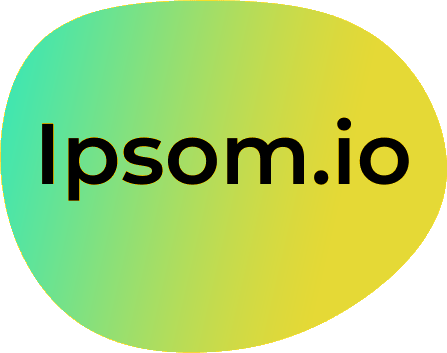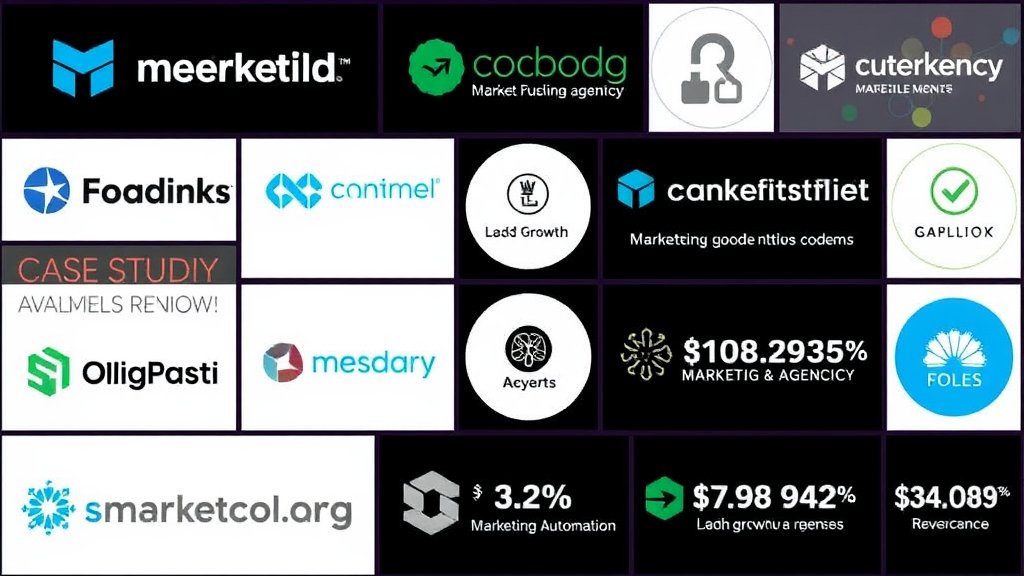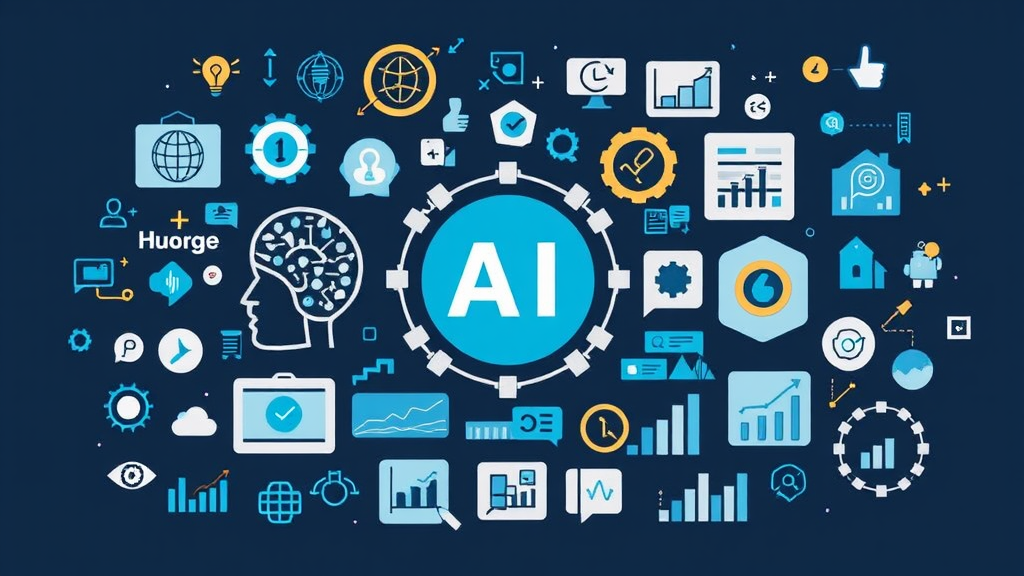Marketing automation agencies specialize in streamlining and enhancing marketing processes through the use of technology, enabling businesses to deliver personalized experiences at scale. By automating repetitive tasks, these agencies help companies improve efficiency, nurture leads effectively, and drive revenue growth.
Key Findings
- Enhanced Efficiency: Automating routine marketing tasks reduces manual effort, allowing teams to focus on strategic initiatives.
- Personalized Customer Journeys: Marketing automation enables tailored communication based on customer behavior and preferences, improving engagement.
- Improved Lead Management: Automated lead scoring and nurturing processes help prioritize prospects and accelerate the sales cycle.
- Data-Driven Insights: Comprehensive analytics provided by automation tools inform decision-making and campaign optimization.
- Scalability: Marketing automation supports business growth by efficiently managing increasing volumes of leads and customers.
What Services Do Marketing Automation Agencies Offer?
Marketing automation agencies offer a comprehensive suite of services designed to streamline marketing processes, enhance customer engagement, and drive business growth. Their offerings typically include:
Strategy Development and Consulting
Agencies collaborate with businesses to craft tailored marketing automation strategies that align with specific goals, such as increasing brand awareness, generating leads, or improving customer retention. This involves selecting appropriate automation tools and developing plans to scale marketing efforts efficiently.
Implementation and Integration of Automation Tools
These agencies assist in choosing and implementing suitable marketing automation platforms, ensuring seamless integration with existing systems like Customer Relationship Management (CRM) software. This integration facilitates efficient lead management and personalized customer interactions.
Campaign Management and Execution
Marketing automation agencies design and manage automated campaigns across multiple channels, including email, social media, and paid advertising. They focus on personalizing content to engage target audiences effectively and ensure consistent messaging across platforms.
Lead Nurturing and Scoring
By automating lead nurturing processes, agencies deliver personalized messages based on user behavior, guiding prospects through the sales funnel. They also implement lead scoring systems to prioritize leads, enabling sales teams to focus on the most promising prospects.
Data Analysis and Reporting
Agencies provide detailed analytics and reporting services, tracking key performance indicators (KPIs) such as email open rates, click-through rates, and conversion rates. This data-driven approach allows businesses to optimize their marketing strategies and improve return on investment (ROI).
Content Automation and Personalization
They automate the distribution of personalized content across various channels, ensuring that messages resonate with specific audience segments. This includes automating email campaigns, social media posts, and other content marketing efforts.
Training and Support
Marketing automation agencies often provide training and ongoing support to ensure that businesses can effectively use automation tools and strategies. This includes educating teams on best practices and offering assistance with technical issues.
By leveraging these services, businesses can enhance their marketing efficiency, deliver personalized customer experiences, and achieve their marketing objectives more effectively.
External Sources: Learn More
How to Choose the Right Marketing Automation Agency for Your Business
Selecting the right marketing automation agency is crucial for enhancing your business's marketing efficiency and achieving your strategic goals. To make an informed decision, consider the following factors:
Define Your Objectives and Needs
Begin by clearly identifying what you aim to achieve with marketing automation. Whether it's increasing lead generation, improving customer retention, or boosting sales, having specific goals will help you find an agency that aligns with your business objectives.
Research and Compare Agencies
Conduct thorough research to identify agencies that specialize in marketing automation. Review their websites, case studies, and client testimonials to assess their expertise and track record. Compare the services they offer, the industries they have experience in, and the scale of businesses they have worked with. Look for agencies with a solid reputation and a history of success in implementing marketing automation strategies.
Evaluate Expertise and Technological Proficiency
Ensure the agency has experience with various marketing automation platforms, such as HubSpot, Marketo, or Salesforce Marketing Cloud. Inquire about their certifications and partnerships with these platforms, as this indicates a level of proficiency. Additionally, assess their ability to integrate these tools with your existing systems to ensure seamless data flow and campaign execution.
Assess Industry Experience
An agency with experience in your specific industry can offer valuable insights and strategies tailored to your market. They are more likely to understand your target audience, competitive landscape, and the unique challenges you face, leading to more effective marketing campaigns.
Review Client References and Case Studies
Request references from the agency to connect with their past or current clients. Inquire about the results achieved, the quality of communication, and the overall satisfaction with the agency's services. Positive testimonials and detailed case studies can provide insights into the agency's reliability and effectiveness.
Consider Budget and Pricing Structure
Determine your budget and discuss it with potential agencies to ensure their services align with your financial capabilities. Be aware of potential extra fees for additional features or services, and seek transparency in pricing to avoid unexpected costs.
Evaluate Communication and Customer Support
Effective communication is essential for a successful partnership. Ensure the agency maintains open lines of communication, promptly addresses concerns, and offers timely solutions. Their support may also extend to training your team for maximum platform utilization.
Assess Cultural Fit
Consider the agency's culture and values to ensure they align with your business. A good cultural fit can lead to a smoother collaboration and better results. When you and your agency share similar values, the partnership is more likely to thrive.
By carefully evaluating these factors, you can select a marketing automation agency that aligns with your business needs and contributes to your marketing success.
External Sources: Learn More
Top Marketing Automation Platforms Utilized by Agencies
Marketing automation platforms are essential tools for agencies aiming to streamline operations, enhance client engagement, and drive measurable results. Below is an overview of top marketing automation platforms commonly utilized by agencies:
1. HubSpot
HubSpot offers an all-in-one marketing automation platform designed to help businesses of all sizes streamline their marketing, sales, and customer service. It's popular for its user-friendly design, clean interface, and wide range of integrations.
2. Marketo Engage
Marketo Engage is an advanced marketing automation tool focused on lead management, email marketing, and analytics. It helps businesses create personalized marketing campaigns and customer journeys. With robust analytics features, Marketo Engage aids in measuring and optimizing marketing strategies for improved results.
3. ActiveCampaign
ActiveCampaign is an AI-powered automation platform for enterprises looking to personalize customer interactions at every stage of the buyer lifecycle. The platform offers audience-centric tools for lead generation, nurturing, and conversion, enabling businesses to engage the right audience at the right time.
4. Brevo (formerly Sendinblue)
Brevo is a versatile marketing automation platform built to help agencies scale their efforts effectively. With features like email and SMS marketing, it offers an all-in-one solution for creating cohesive, multi-channel campaigns. Designed for affordability, Brevo provides budget-friendly pricing plans without sacrificing essential features.
5. SharpSpring
SharpSpring is a dynamic marketing automation platform known for its comprehensive features and flexibility, catering to agencies and businesses looking to optimize their marketing strategies and customer interactions.
6. Eloqua by Oracle
Eloqua by Oracle is an enterprise-level marketing automation platform with robust campaign management and analytics features. It caters to businesses with large-scale marketing operations, providing them with tools to plan, execute, and measure marketing campaigns effectively.
7. Pardot by Salesforce
Pardot by Salesforce is a B2B marketing automation solution that seamlessly integrates with Salesforce CRM. It specializes in lead nurturing and scoring, enabling businesses to manage their leads and drive conversions effectively. The platform helps align sales and marketing efforts, fostering better collaboration between the two departments.
8. Zapier
Zapier is an online automation tool that connects your favorite apps, such as Gmail, Slack, Mailchimp, and more than 2,000 others. It allows you to build workflows (known as Zaps) to automatically move information between your web apps.
Selecting the appropriate marketing automation platform depends on an agency's specific needs, client base, and operational scale. Evaluating each platform's features, integrations, and scalability is crucial to ensure alignment with the agency's objectives and client requirements.
External Sources: Learn More
Transform your operations and boost efficiency—learn more at ipsom.io or get in touch at office@ipsom.io.
Case Studies: Success Stories from Leading Marketing Automation Agencies
Marketing automation agencies have played a pivotal role in transforming businesses by streamlining marketing processes, enhancing lead management, and driving substantial revenue growth. Below are several case studies that highlight the success stories of leading marketing automation agencies:
Sojourn Solutions and Tribune Publishing
Tribune Publishing, owner of nine major U.S. newspapers, faced challenges with its marketing automation platform, struggling with lead generation and CRM integration. Sojourn Solutions migrated their system to Oracle Eloqua, improving data hygiene and lead scoring. This led to a 22% increase in qualified leads and an 80% rise in website engagement.
ProperExpression and Intraprise Health
Intraprise Health, a healthcare SaaS company, struggled with lead generation and linking marketing efforts to sales. ProperExpression implemented a comprehensive growth marketing strategy, including full-funnel advertising and CRM optimization. The result was a 710% growth in inbound-generated pipeline and a 466% increase in inbound-generated revenue.
The Pedowitz Group and Xylem
Xylem, a U.S.-based water technology provider, needed to prove the effectiveness of digital marketing before scaling. The Pedowitz Group launched a pilot campaign using Marketo, focusing on multi-channel delivery and content automation. This resulted in 150 marketing-qualified leads and $1 million in new sales pipeline.
Revenue Institute and HelloCash
HelloCash, an Austrian POS company, struggled to convert free users to paid plans, with only a 7% conversion rate. Revenue Institute overhauled their marketing automation strategy, leading to an 8.9x increase in conversions and generating $710,000 in annual recurring revenue in just one month.
CRMT Digital and Lenovo
Lenovo aimed to improve the efficiency of large-scale demand generation campaigns across multiple regions. CRMT Digital applied its Marketing Performance Roadmap framework, resulting in improved campaign results and a 98% improvement in email delivery rates.
Green Hat and Schneider Electric
Schneider Electric sought to generate new leads through content-driven inbound marketing but struggled with measuring online traffic and site conversions. Green Hat implemented automated marketing systems and integrated data sources into an analytics platform, leading to a significant boost in brand positioning and engagement.
These case studies demonstrate the transformative impact of marketing automation agencies in optimizing marketing strategies and driving business growth.
External Sources: Learn More
Transform your workflow and boost efficiency—visit ipsom.io or drop us a line at office@ipsom.io.
The Future of Marketing Automation: Trends and Innovations
Marketing automation is rapidly evolving, driven by technological advancements and changing consumer expectations. Several key trends and innovations are shaping its future:
1. AI and Machine Learning Integration
Artificial intelligence (AI) and machine learning (ML) are becoming integral to marketing automation platforms. These technologies enable hyper-personalization at scale, offering real-time content recommendations, predictive analytics, and intelligent customer segmentation. This integration allows marketers to deliver the right message to the right person at the right time, enhancing customer engagement and satisfaction.
2. Hyper-Personalization
Moving beyond basic demographic segmentation, hyper-personalization leverages real-time behavioral data, purchase history, and browsing patterns to create unique experiences for each customer. This approach ensures that marketing messages are highly relevant, leading to increased engagement and conversion rates.
3. Omnichannel Marketing Automation
Consumers interact with brands across multiple touchpoints. Omnichannel marketing automation ensures a seamless and consistent customer experience by integrating various channels—such as email, social media, SMS, and chatbots—into a unified strategy. This approach allows for synchronized messaging and campaigns, enhancing customer engagement.
4. Predictive Analytics
Predictive analytics empowers businesses to anticipate future trends and consumer behavior patterns. By analyzing large datasets, marketers can identify high-value leads, forecast campaign performance, and make data-driven decisions to optimize marketing strategies and maximize ROI.
5. Data Privacy and Compliance
With increasing emphasis on data privacy and security, businesses must ensure compliance with regulations such as GDPR and CCPA. Marketing automation platforms are enhancing data protection features, including robust encryption, user consent management, and granular access controls, to safeguard sensitive information and build consumer trust.
6. No-Code and Low-Code Platforms
The rise of no-code and low-code interfaces democratizes marketing technology by allowing marketers to build complex automation workflows without extensive technical expertise. These platforms feature intuitive, visual interfaces that enable rapid implementation and modification of automation systems, fostering innovation and agility within marketing teams.
By embracing these trends and innovations, businesses can enhance their marketing strategies, improve customer engagement, and drive growth in an increasingly digital landscape.
External Sources: Learn More
FAQ – Frequently Asked Questions
What is marketing automation, and how can it benefit my business?
Marketing automation refers to the use of software and technology to automate repetitive marketing tasks, such as email campaigns, social media posting, and lead nurturing. This streamlines processes, allowing businesses to deliver personalized experiences to customers efficiently.
Benefits of Marketing Automation:
-
Increased Efficiency: Automating routine tasks frees up time for strategic planning and creative initiatives.
-
Enhanced Personalization: Delivers targeted content based on customer behavior and preferences, improving engagement and conversion rates.
-
Improved Lead Management: Facilitates lead scoring and nurturing, ensuring timely follow-ups and higher conversion rates.
-
Data-Driven Decision Making: Provides real-time analytics to assess campaign performance and refine marketing strategies.
-
Scalability: Supports business growth by managing larger volumes of leads and campaigns without a proportional increase in resources.
Implementing marketing automation can lead to a 14.5% increase in sales productivity and a 12.2% reduction in marketing overhead.
How do marketing automation agencies integrate with existing marketing strategies?
Marketing automation agencies enhance existing marketing strategies by integrating automation tools with current systems, streamlining processes, and improving customer engagement. They assess business goals and existing marketing processes to develop tailored automation strategies that align with objectives.
A key aspect of their role is integrating marketing automation with Customer Relationship Management (CRM) systems. This integration centralizes customer data, enabling personalized marketing campaigns and automated lead nurturing, which enhances the customer journey from initial contact to conversion.
Agencies also ensure seamless integration with other platforms, such as e-commerce systems, to automate workflows like product recommendations and cart management. This synchronization between marketing and sales efforts provides a unified customer experience.
Additionally, they offer training and ongoing technical support to ensure effective use of automation tools, and provide advanced analytics and reporting to turn data into actionable insights, helping businesses refine their marketing strategies.
By integrating marketing automation with existing strategies, these agencies help businesses streamline operations, enhance customer engagement, and drive revenue growth.
What factors should I consider when selecting a marketing automation agency?
When selecting a marketing automation agency, consider the following factors:
-
Industry Expertise: Choose an agency with experience in your sector to ensure they understand industry-specific trends and challenges.
-
Service Range: Ensure the agency offers a comprehensive suite of services, including SEO, content marketing, social media management, and PPC campaigns, tailored to your needs.
-
Past Performance: Review case studies and client testimonials to assess the agency's track record and effectiveness.
-
Scalability: Confirm the agency can scale services to accommodate your business growth and evolving marketing needs.
-
Integration Capabilities: The agency should ensure seamless integration of marketing automation tools with your existing systems, such as CRM and content management platforms.
-
Data Security and Compliance: Verify that the agency adheres to data protection regulations and has robust security measures in place.
-
Customer Support: Assess the agency's responsiveness and support services, including training and ongoing assistance.
-
Budget Alignment: Ensure the agency's pricing structure aligns with your budget and offers a fair price-performance ratio.
-
Communication and Collaboration: Effective communication and a collaborative approach are essential for a successful partnership.
-
Long-Term Partnership Potential: Look for an agency capable of supporting your marketing efforts over the long term, adapting to changes and optimizing strategies as needed.
Evaluating these factors will help you select a marketing automation agency that aligns with your business objectives and fosters a productive partnership.
Can small businesses afford marketing automation services?
Yes, small businesses can afford marketing automation services. Many platforms offer free plans or affordable pricing tailored for small enterprises. Here are some options:
-
HubSpot: Offers a free plan with essential tools like CRM, email marketing, and customer support. Paid plans start at $15 per user/month.
-
Brevo (formerly Sendinblue): Provides a free plan with 300 emails per day. Paid plans begin at $9/month, offering 5,000 emails per month and additional features.
-
Mailchimp: Features a free plan for up to 500 contacts and 2,500 monthly email sends. Paid plans start at $9.99/month.
-
Moosend: Offers a free plan with unlimited emails for up to 1,000 subscribers. Paid plans start at $9/month.
-
SendPulse: Provides a free plan with essential email automation features, allowing up to 15,000 monthly emails to 2,500 subscribers. Paid plans start at $6.40/month.
These options enable small businesses to implement marketing automation without significant financial strain.
How do marketing automation agencies measure the success of their campaigns?
Marketing automation agencies measure campaign success using several key performance indicators (KPIs):
-
Click-Through Rate (CTR): The percentage of recipients who click on a link within the campaign, indicating engagement levels.
-
Conversion Rate: The proportion of users who complete a desired action, such as making a purchase or filling out a form, reflecting the campaign's effectiveness in driving outcomes.
-
Open Rate: For email campaigns, the percentage of recipients who open the email, providing insight into the effectiveness of subject lines and sender reputation.
-
Unsubscribe Rate: The rate at which recipients opt out of communications, helping assess content relevance and audience satisfaction.
-
Marketing Qualified Leads (MQLs): The number of leads deemed more likely to become customers based on engagement and predefined criteria.
-
Sales Qualified Leads (SQLs): Leads that have been vetted further and are considered ready for direct sales engagement.
-
Sales Cycle Length: The average time taken to convert a lead into a customer, indicating the efficiency of the sales process.
-
Revenue Generated: The total income directly attributed to the campaign, measuring its financial impact.
-
Customer Lifetime Value (CLV): The total revenue expected from a customer over their relationship with the business, assessing long-term value.
-
Customer Acquisition Cost (CAC): The average expense incurred to acquire a new customer, evaluating the cost-effectiveness of marketing efforts.
By analyzing these metrics, agencies can gauge the performance of their campaigns and make data-driven decisions to optimize future strategies.







